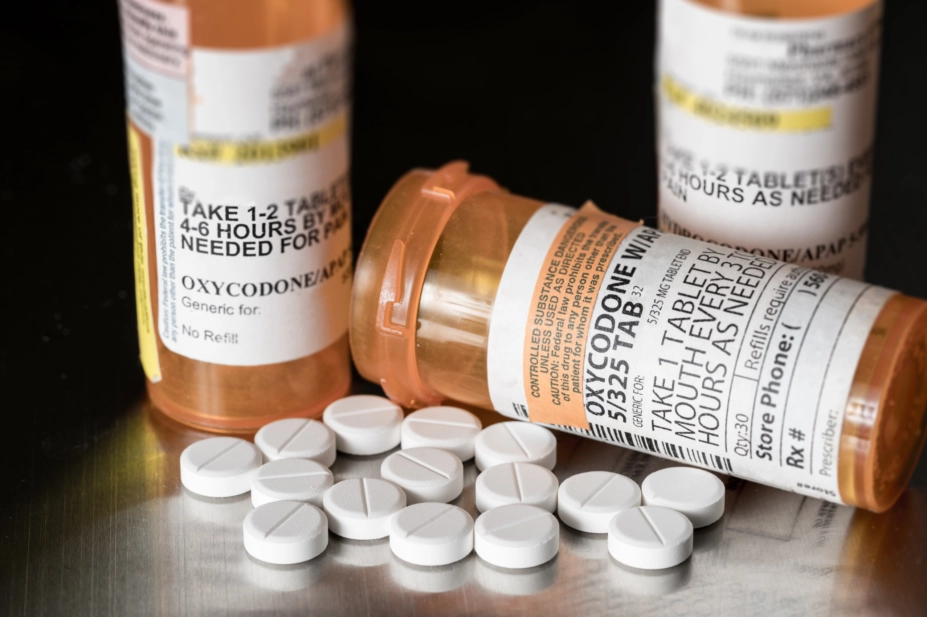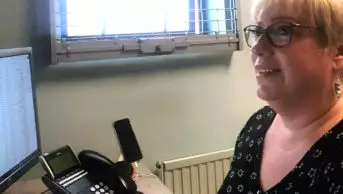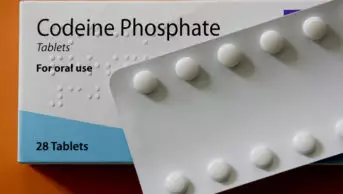
Shutterstock.com
More than half (53%) of all hospital admissions for drug misuse poisoning in England are related to opioids other than heroin, figures from NHS Digital have shown.
Data from 2018/2019, published on 28 November 2019, show that 18,053 people in England were admitted to hospital for poisoning related to drug misuse that year; the primary diagnosis in 9,486 of those cases was poisoning from opioids other than heroin, including codeine and morphine.
The figures also show that the three local authorities with the highest rate of drug poisoning admissions were among the areas with the highest levels of opioid prescribing.
St. Helens (95 admissions per 100,000 population) topped the list for admissions, followed by Middlesbrough and Blackpool (at 91 and 80 admissions per 100,000 population, respectively).
Data from Open Prescribing show that these regions also had high levels of opioid prescribing, as measured by oral morphine equivalence per 1,000 registered patients.
Blackpool Clinical Commissiong Group (CCG) and St Helens CCG had the second and third highest rates in England, respectively. Middlesbrough is covered by South Tees CCG, which had the sixth highest rate of opioid prescribing per 1,000 patients.
A spokesperson for Blackpool CCG told The Pharmaceutical Journal that it had no evidence to support a link between opioid prescribing and hospital admissions for poisoning by drugs misuse, but that opioid prescribing levels were high in the region owing to a large number of patients with multiple long-term conditions and complex care needs. They added that the CCG is “currently working with a multi-agency team to reduce the volume of opioid prescribing across the Fylde Coast”.
Nicola Cartwright, assistant director of medicines management at St Helens CCG, said the centre was “working closely with primary care prescribers and with our colleagues in public health and across the wider system to jointly tackle the reasons that result in people taking prescription medication, such as opioids. We recommend prescribers regularly review the use of these medications and seek any suitable alternative solutions for their patients”.
A spokesperson for NHS South Tees CCG said that they were “very much aware of the concerns relating to the high opioid use in the Tees Valley, which mirrors the high rates across the North East region”, and added that there are several “initiatives underway across the Tees Valley to help reduce the prescribing of opioids where appropriate, focusing on a range of prescriptions, including opiates, gabapentinoids and benzodiazepines”.
“In many cases, the complex nature of underlying conditions means patients need a broader approach than just medication, so it can take time to find a solution which addresses the needs of each individual patient.”
NHS Digital’s figures also show that hospital admissions for drug misuse poisoning in England are five times higher in areas of high deprivation compared to areas of low deprivation.
In the most deprived areas, the admissions rate for drug misuse poisoning is around 70 per 100,000 population, compared with 14 per 100,000 population in the least deprived areas.
The Pharmaceutical Journal reported in August 2019 that figures from the Office for National Statistics showed that there were 4,359 deaths related to drug poisoning in England and Wales in 2018: the highest figure since records began in 1993. Of these, 2,917 deaths were related to poisoning by drug misuse: a 17% increase on the figure for 2017 (2,503), and a 46% increase compared to 2008.
Drug poisoning deaths are defined as deaths from drug abuse and dependence; complications of drug abuse (for example, septicaemia from intravenous drug use); accidental causes; and suicide.
A drug misuse death is recorded when the underlying cause is drug abuse or drug dependence, or poisoning involving substances controlled under the Misuse of Drugs Act.


